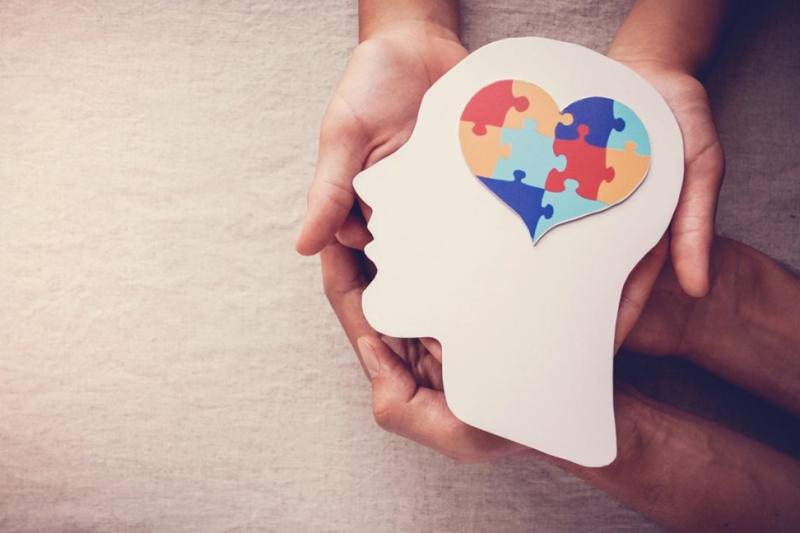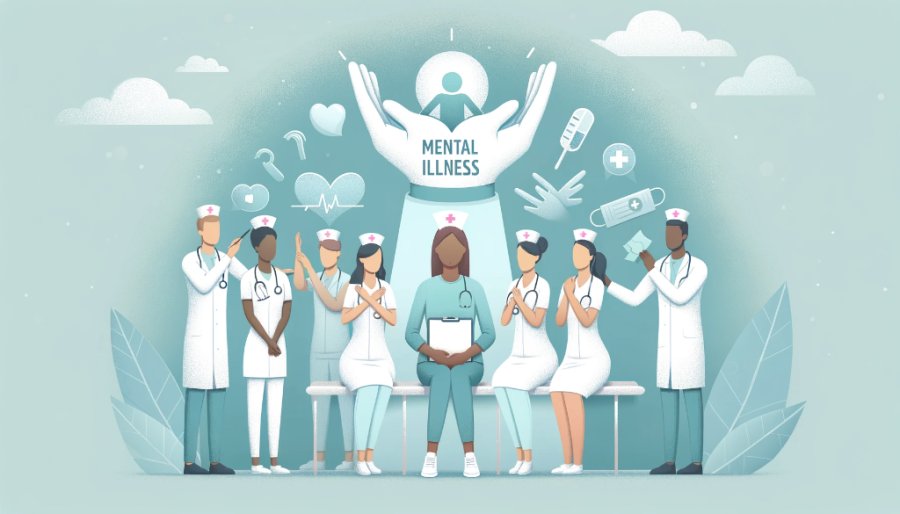Breaking the Stigma: the Vital Role of Nurses in Reducing Mental Health Stigma

Stigma around mental illness permeates society and impacts millions of people worldwide. The term ‘stigma’ refers to the negative attitudes, preconceptions and prejudices concerning mental illness that can result in discrimination, social isolation and limited opportunities for those with mental health issues. The stigma attached to mental illness makes it difficult for people to ask for help, and can keep them from getting the care and support they require to effectively manage their symptoms.
Nurses play a vital role in reducing mental health stigma. As healthcare professionals who interact with patients daily, nurses have a unique opportunity to provide education and awareness about mental health, encourage open communication, and advocate for patients with mental illness.
Understanding Mental Health Stigma
Mental health stigma continues to be a significant barrier to obtaining the best possible results for both individuals’ and society’s mental health, despite rising awareness and advocacy. Negative attitudes, beliefs and behaviors toward those who are mentally ill are referred to as mental health stigma. The stigma can manifest itself in a variety of ways, such as stereotypes, prejudice and social exclusion.
Stigma around mental health has a significant effect on people and society. Stigma can make it difficult for people to get the mental health care they need, and can discourage them from asking for help when they need it. Besides exacerbating mental health symptoms, stigmatizing attitudes can cause emotions of shame, embarrassment and isolation, which have a negative influence on one’s general quality of life. Mental health stigma can also result in societal discrimination, restricted job opportunities and access to housing, and social exclusion for those experiencing mental illness.
Common misconceptions about mental illness contribute significantly to mental health stigma. Misconceptions include the belief that mental illness is a sign of weakness, that individuals with mental illness are dangerous or unpredictable, and that individuals with mental illness can simply ‘snap out of it’.
It is crucial to understand the negative effects of mental health stigma to address its root causes and develop effective strategies to reduce it. By clearing misconceptions and increasing awareness of mental illness, we can work toward breaking down the barriers that prevent individuals from accessing the care they need. This is where nurses play a crucial role in reducing mental health stigma.
How Can Nurses Reduce Stigma About Mental Illness

How can nurses reduce stigma about mental illness? Below, we discuss the ways that nurses play a critical role in reducing mental health stigma.
1. Providing Education and Awareness About Mental Health
By enlightening patients, families and communities about mental health, nurses can play a significant role in reducing the stigma associated with this condition. Nurses can help to dispel prevalent misconceptions about mental illness, and encourage understanding and acceptance by giving factual information about the causes, symptoms and treatments of mental illness.
The occurrence of mental illness and the significance of getting care when needed can both be made more widely known by nurses. This may entail educating people on the many resources and treatment choices for mental illness, as well as urging them to get assistance if they notice any signs of a mental illness.
2. Encouraging Open Communication and Breaking Down Barriers
By promoting open communication and breaking barriers between those who have mental illness and the rest of society, nurses can help to lessen stigma surrounding mental health.
By encouraging patients to talk to others about their thoughts and feelings concerning their mental health, nurses can further help to lessen stigma. This can entail assisting patients in building effective communication strategies and offering them support and motivation as they strive to overcome the obstacles brought on by mental illness.
3. Advocating for Patients with Mental Illness
Another way that nurses can help reduce mental health stigma is by advocating for patients with mental illness. This can involve fighting against discrimination and promoting patients’ rights to efficient mental health care and dispelling inaccurate preconceptions about mental illness.
Nurses can also play a role in advocating for systemic change to decrease mental health stigma. This entails working with policymakers and other stakeholders to develop and adopt policies that promote mental health and lessen stigma, as well as promoting increased funding and resources for mental health research and treatment.
4. Promoting Mental Health as a Crucial Aspect of Overall Wellbeing
Nurses can contribute to a decrease in stigma by stating the significance of mental health for general wellbeing. Nurses may contribute to the transition from negative stereotypes and stigma and toward positive messages of hope and perseverance by highlighting the significance of mental health and wellness.
Nurses can assist patients in implementing self-care routines and reliable coping methods that support mental health and wellness. This can involve educating patients on stress-reduction practices, healthy lifestyle options, and other resources that support mental health and wellbeing.
Overall, nurses play a key role in reducing mental health stigma. By providing education and awareness, encouraging open communication, advocating for patients, and promoting mental health as a significant part of general wellbeing, nurses can help to reduce the negative impact of stigma on individuals and society.
How to Learn Nursing Skills for Providing Mental Health Care
Although nurses are absolutely critical to lowering stigma surrounding mental illness, they are unable to do so without the right education and training. The knowledge and skills needed to boost mental health awareness and lessen stigma in communities can be acquired by nurses through an online MSN AGPC degree program, such as the one provided by Spring Arbor University.
The emphasis on mental health treatment, advocacy and education is one of the mainstays of the online MSN AGPC curriculum. Nurses can learn skills for providing mental health care, such as how to assess and diagnose mental health illnesses, create treatment plans, and use evidence-based interventions through the online MSN AGPC program. They also learn how to advocate for patients with mental illness and promote mental health as a crucial aspect of overall wellbeing.
Spring Arbor University’s online MSN AGPC program also emphasizes the importance of ethical and culturally sensitive care. Students are taught to provide culturally appropriate care, respecting the values, beliefs and practices of people from diverse backgrounds. This training is essential for reducing stigma, as individuals from different cultures may experience mental health stigma in unique ways.
Real-World Examples of Nurses Reducing Mental Health Stigma

The impact of nurses in reducing mental health stigma cannot be overstated. They have the ability to positively impact the lives of individuals and entire communities through education, advocacy and open communication.
One example of nurses breaking down barriers and promoting mental health awareness can be seen in the work of the Veterans Affairs (VA) healthcare system. The VA has implemented several initiatives aimed at reducing mental health stigma, including the Make the Connection campaign, which features videos of veterans discussing their experiences with mental health challenges and encouraging others to seek help. Nurses within the VA system have played a key role in promoting the campaign and providing support and resources to veterans seeking mental health care.
The work done by nurses in schools serves as another illustration. The first place to go for students with mental health problems is frequently the school nurse. School nurses can improve mental health awareness and lessen stigma within schools by offering advice and support to both students and staff. The National Association of School Nurses (NASN), for instance, has produced a Mental Health Toolkit for school nurses that offers information and tools to improve mental health and wellbeing in schools.
The outcomes for people and communities have improved as a result of these initiatives. People are more likely to seek assistance and receive the right care when stigma is lessened and mental health awareness is promoted. Furthermore, reducing stigma and increasing awareness can also lead to greater acceptance and understanding within communities.
The Future of Mental Health Stigma Reduction
The urgent need to lessen stigma surrounding mental illness persists. Despite recent advancements, much work remains to be done. It is critical to understand that mental illness is a medical condition that calls for support and treatment, rather than a personal failing or weakness. Healthcare systems, policymakers and communities should continue to place a high priority on reducing stigma.
Integrating mental health care into primary care is one possible strategy for further lowering stigma associated with mental illness. By treating the whole person in a single healthcare setting, this strategy, also known as integrated care, addresses both physical and mental health issues. By providing patients with a more comprehensive approach to healthcare, integrated care has the potential to reduce stigma and improve outcomes for individuals with mental illness.
Nurses have an essential role to play in the ongoing fight against mental health stigma. As trusted healthcare and elder care professionals, they have the ability to provide education, break down barriers, and advocate for patients with mental illness. Nurses can also play a key role in promoting mental health as a crucial aspect of overall wellbeing and integrating mental health care into primary care settings.
More to Read:
Previous Posts:











